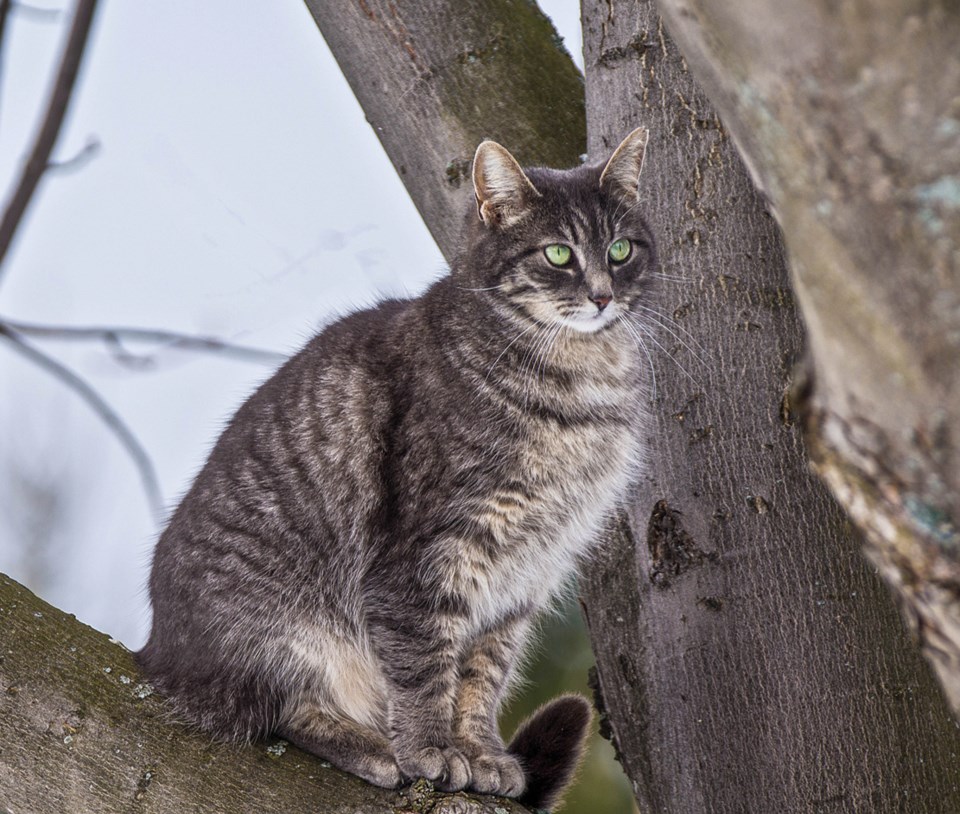Sechelt’s bylaw staff are recommending against pursuing a cat bylaw.
The recommendation is in a detailed report that was due to go before council Jan. 17 (after Coast Reporter’s deadline).
Running more than 60 pages, the report weighs the pros and cons and outlines arguments made in favour by various residents and animal welfare groups over the years, including previous reports and council motions going back as far as 1998.
Council asked for this latest report in November 2016, after yet another request from a resident to do something to regulate cats.
“I know we’ve seen this come forward for 20 years and I know it’s difficult,” Mayor Bruce Milne told council at the time, going on to say he saw it as a real problem. “[Cats are] environmentally destructive to the tune of killing multiple millions of songbirds throughout North America and stats on cats and destruction of the environment are pretty devastating.”
As well as looking at Sechelt’s previous history on cat regulations, district staff contacted several other B.C. municipalities. “It was found that in B.C. no jurisdiction requires the owner of a cat to pay a licensing fee to the local authority,” the report said. “In British Columbia, Kamloops appears to be the only municipality that provides a service for the licensing of cats. It is not required for cat owners to register their cat.”
While only Kamloops has a licensing regime, most jurisdictions deal with some aspects of cat ownership and cat behaviour, such as the number of cats per household, through relevant bylaws.
According to the report, “Both the Sunshine Coast SPCA and the BC SPCA are strong proponents of a mandatory cat licensing program. They argue that in order for the welfare of cats to be improved in any community, regulatory and educational initiatives are required. While cat licensing alone may not solve cat welfare and control issues, it can be a significant component of a community’s efforts to address them.”
Bylaw department staff concluded that the costs associated with drafting and enforcing a cat bylaw are unclear.
“Currently, district staff do not believe that cats and the cat population are perceived to be a problem… Bylaw enforcement department has received four calls for service related to cats or cat behavior since 2014,” the report says.
It also says the bylaw department does not see the link between cats and declining bird populations as “the issue to drive forward the implementation of a bylaw.”
Instead, the report suggests the central question is, “Should cat owners be held accountable to similar standards that are required of dog owners and is there an increased risk to the general public as a result of an unmanaged cat population?… It is clear that attempts to hold cat owners to the same accountability as dog owners has made no differences in the communities that a bylaw has been adopted.”



